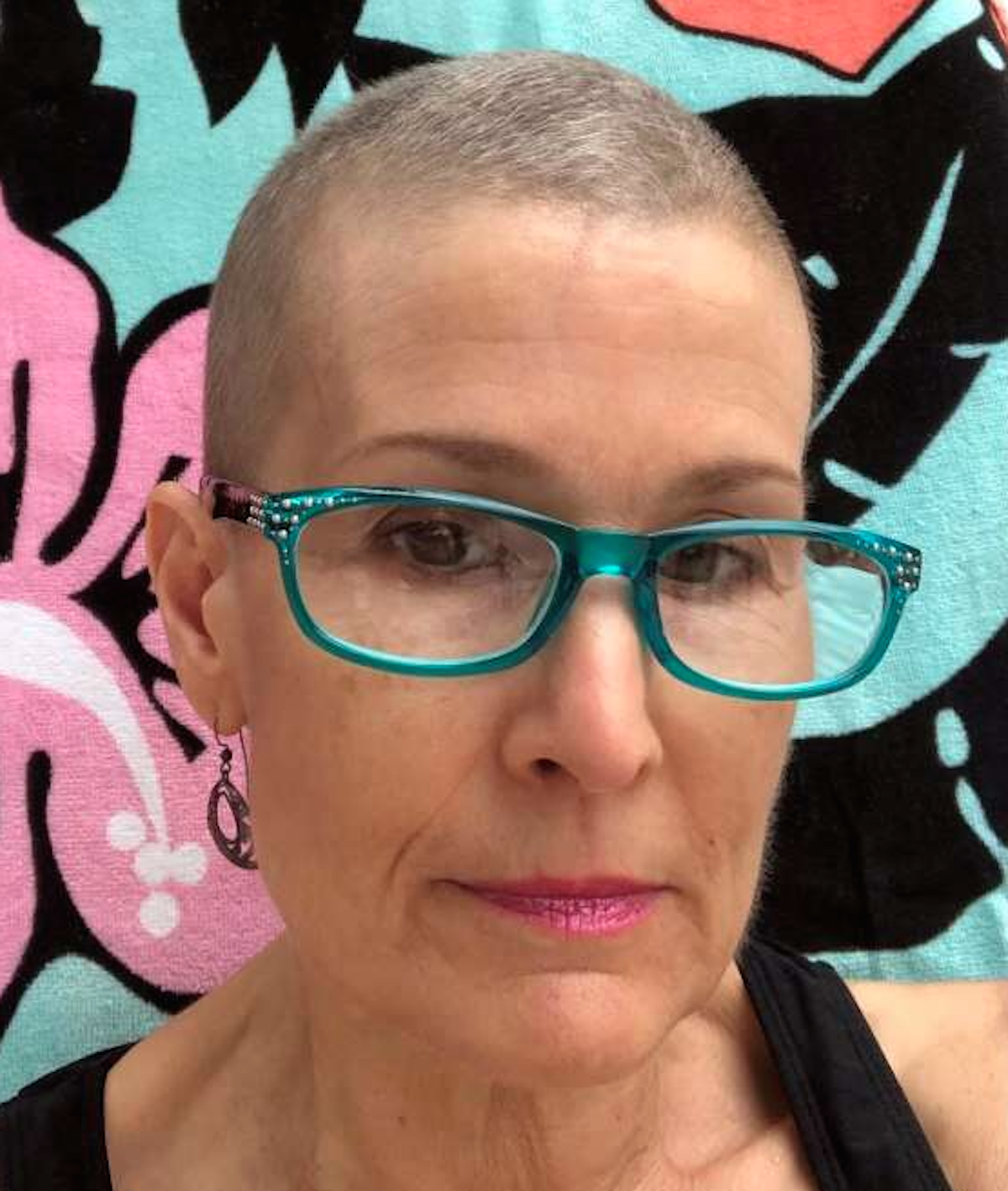How Immunotherapy Helps In The Fight Against Cancer
- Leslie Stone first suspected her vaginal bleeding to be the early onset of menopause, a normal part of aging, but it turned out to be “very aggressive” uterine cancer. When her cancer returned, she underwent six rounds of chemotherapy, followed by five weeks of radiation five days a week.
- Before starting immunotherapy treatment, Stone decided to go on a “last hurrah road trip” with her son. However, prior to her trip, which was planned for June 1, 2022, she was informed she had “zero cancer.”
- Immunotherapy, which helped Stone get better, is a medicine that helps your immune system wake up, search for, and then attack cancer cells whether microscopic or in the form of large or bulky tumors.
- Read more about the specific medication used in this case.
Stone, an art professor in California, is a great example of how incredible the human body is when it comes to helping itself heal during a cancer battle.

Stone had her uterus removed with a minimally invasive robotic surgery, which led to her feeling significantly better shortly after.
However, she started having minimal vaginal bleeding about two and a half weeks later. When she underwent more scans, a different doctor found “pea-sized” tumor by the incision from the hysterectomy.
The discovery revealed her cancer had returned. Stone then underwent six rounds of chemotherapy, which she followed up with five weeks of radiation five days a week.
Expert Gynecological Cancer Resources
- Intimacy After Cervical Cancer — “It’s a Journey”
- 5 Possible Symptoms That May Indicate Gynecological Cancer
- ‘The Google Earth of Endometrial Cancer’ — a New, Molecular Snapshot Could Lead to Better Treatment of the Disease
- Combo Immunotherapy-Chemo Treatment May Help Slow Progression of Advanced Endometrial Cancer: Studies Show Promising Results
By Thanksgiving weekend of 2020, she was “shocked” to hear her cancer had spread and was likened to “sprinkle of cancer everywhere.”
Since it was a holiday weekend, Stone said she had difficulting getting in touch with doctors, admitting she was “in a bit of a panic.”
When her doctor reached back out to her, he informed her about a
When her doctor returned her call, he gave her some positive news, a treatment called Keytruda, which she was to start immediately, was recently approved for her disease stage.
Despite experiencing uncomfortable side effects with the medication, which made her stomach “expand,” she soon felt better and “felt great ever since.”
Dr. Alberto Mendivil, Stone’s gynecologic oncologist based out of Newport Beach, California, told TODAY.com, that i was troubling to hear her cancer, which had been caught early on, had returned.
Mendivil told the news outlet, “When she had her surgery, the thought was that she was free and clear and she had an early stage and the likelihood of recurrence was less than 5%. Unfortunately, that is still one in 20, roughly, and her cancer did come back.”
He explained the reasoning behind why her cancer become more aggressive, it grew into the lymphovascular space and she had a genetic mutation known as Lynch syndrome, meaning cancer cells have an easier time replicating.
Dr. Diana English breaks down the risks and symptoms of uterine cancer
“This drug is probably what many would consider the magic bullet of treatments in patients with these types of mutations,” Mendivil explained. “Not all patients will respond, unfortunately. But when patients do have a response, their response can be incredible.”
Prior to starting immunotherapy treatment, Stone decided to go on a “last hurrah road trip” with her son. However, prior to her trip, which was planned for June 1, 2022, she was informed she had “zero cancer.”
She recounted, “At that point it went from a farewell tour to a celebratory one. We just had an amazing time.”
Stone, who went on a road trip from California to Florida, to Washington, D.C., to New York, Niagara Falls, and Ohio, now “always” has something “fun to look forward to.”
Immunotherapy, which helped Stone get better, is a medicine that helps your immune system wake up, search for, and then attack cancer cells whether microscopic or in the form of large or bulky tumors.
‘Immunotherapy Gave Me Back My Life’
Overview of Uterine Cancer
Gynecological cancers can be tricky to detect, but there are signs that if spotted you should consult about with your doctor. One of the most common symptoms that may indicate that uterine cancer has developed is irregular bleeding. This means bleeding in between periods for pre-menopausal women and unexpected bleeding for post-menopausal women.
When assessing your risk for uterine cancer, there are a few factors that can predispose someone to the disease. These risk factors include conditions such as hypertension, diabetes, Polycystic Ovarian Syndrome (a condition which prevents regular periods), obesity, Hyperandrogenism (a condition where someone holds higher levels of male sex hormones) and Lynch Syndrome.
RELATED: 5 Possible Symptoms That May Indicate Gynecological Cancer
“I think one of the challenges with uterine cancer is that it can also happen in younger patients that have certain conditions that might predispose them to cancer,” Dr. Diana English, a gynecologic oncologist at Stanford Health Care, previously told SurvivorNet. “These patients might not be thinking about this, their primary care providers might not be speaking to them about this.”
For younger women, it’s important to take note of these conditions and consult your doctor if there is a family history of these risk factors. If so, make sure to ask your physician what screening methods are available.
Contributing: SurvivorNet Staff
Learn more about SurvivorNet's rigorous medical review process.

